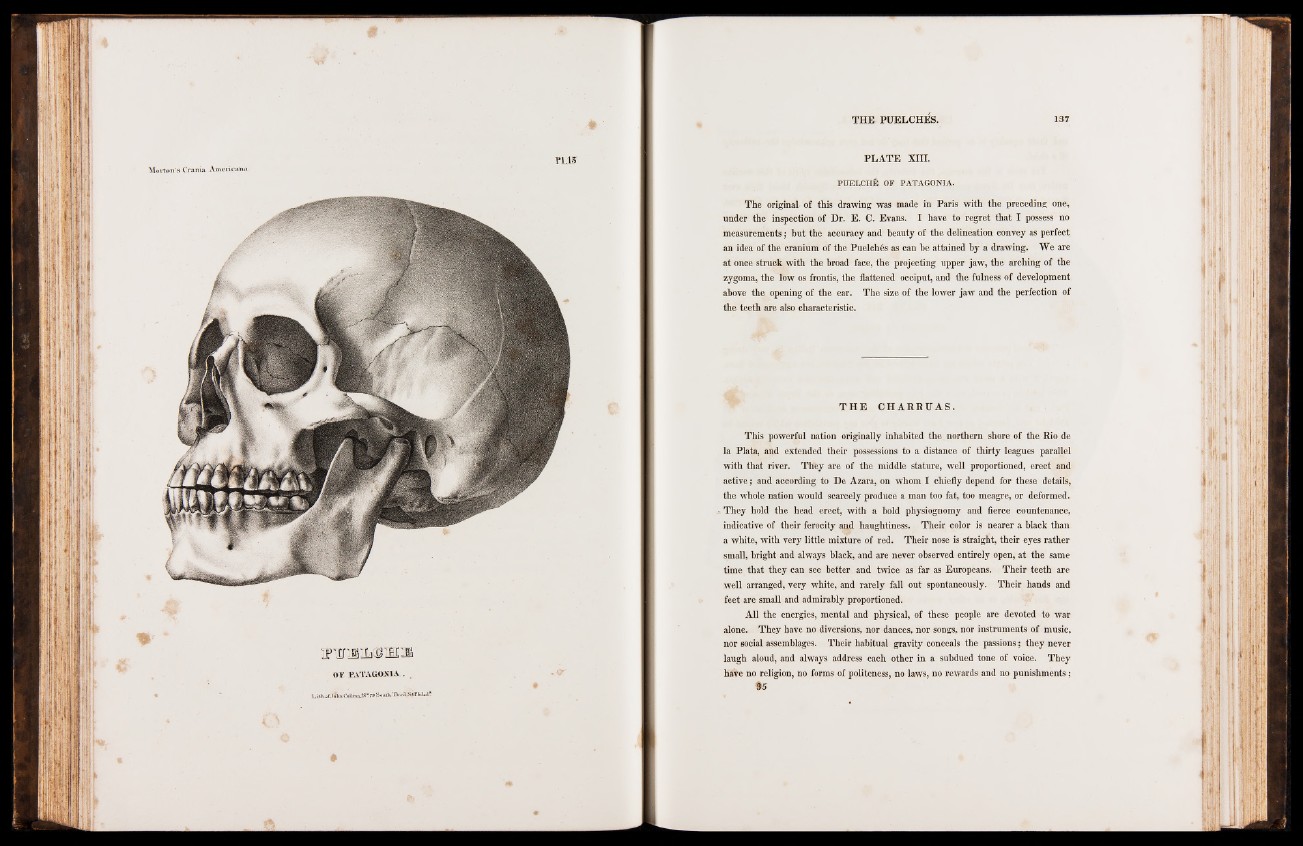
ipttjkmhii:!'
O r PATAGONIA . ,
Lifltaf 3oV C o liW ^ 79;South T V lS tH riU ^
PLATE XIII.
PUELCHE OF PATAGONIA.
The original of this drawing was made in Paris with the preceding one,
under the inspection of Dr. E. C. Evans. I have to regret that I possess no
measurements; hut the accuracy and beauty of the delineation convey as perfect
an idea of the cranium of the Puelches as can be attained by a drawing. We are
at once struck with the broad face, the projecting upper jaw, the arching of the
zygoma, the low os frontis, the flattened occiput, and the fulness of development
above the opening of the ear. The size of the lower jaw and the perfection of
the teeth are also characteristic.
T H E CH AR RU A S .
This powerful nation originally inhabited the northern shore of the Rio de
la Plata, and extended their possessions to a distance of thirty leagues parallel
with that river. They are of the middle stature, well proportioned, erect and
active; and according to De Azara, on whom I chiefly depend for these details,
the whole nation would scarcely produce a man too fat, too meagre, or deformed.
They hold the head erect, with a bold physiognomy and fierce countenance,
indicative of their ferocity and haughtiness. Their color is nearer a black than
a white, with very little mixture of red. Their nose is straight, their eyes rather
small, bright and always black, and are never observed entirely open, at the same
time that they can see better and twice as far as Europeans. Their teeth are
well arranged, very white, and rarely fall out spontaneously. Their hands and
feet are small and admirably proportioned.
All the energies, mental and physical, of these people are devoted to war
alone. They have no diversions, nor dances, nor songs, nor instruments of music,
nor social assemblages. Their habitual gravity conceals the passions; they never
laugh aloud, and always address each other in a subdued tone of voice. They
have no religion, no forms of politeness, no laws, no rewards and no punishments;
$5